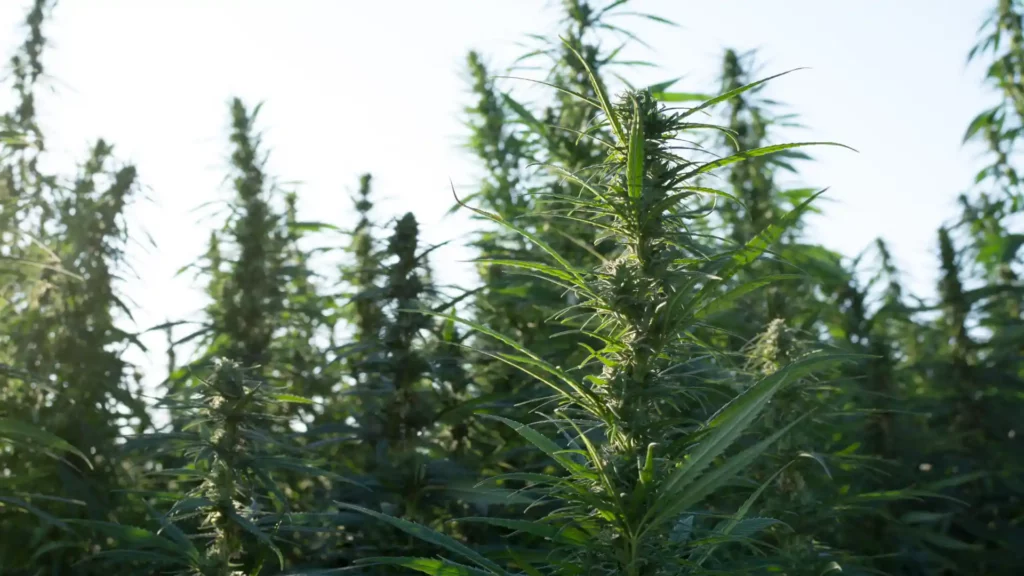The journey towards the legalization of cannabis in Pakistan started with individual accounts of its medicinal benefits
Pakistan has been working on a plan to legalize cannabis for medicinal and industrial uses in an effort to stabilize its economy. Worldwide cannabis regulations are being introduced by many countries, driven by growing recognition of its economic benefits and medicinal properties.
Increased Regulatory Recognition:
The journey towards the legalization of cannabis in Pakistan started with individual accounts of its medicinal benefits. Inspired by personal experiences witnessing the positive impact of CBD oil on family members experiencing sicknesses like Parkinson’s, entrepreneurs like Aamir Dhedhi became advocates for its broader adoption. Dhedhi’s promotion reflected a more extensive feeling within the nation, prompting policymakers to explore the potential of cannabis for economic growth and public health.
By approving the passage of an ordinance that established the Cannabis Control and Regulatory Authority (CCRA), Pakistan made a huge leap toward legitimizing cannabis in February. This regulatory body is entrusted with overseeing the cultivation, extraction, refining, manufacturing, and sale of the drug derivatives for medical and industrial use.
The foundation of the CCRA mirrors Pakistan’s accomplishments to take advantage of the prospering worldwide market for drug derivatives, which is projected to reach more than $30 billion by 2027. Unlike tetrahydrocannabinol (THC), the psychoactive compound in cannabis, cannabidiol (CBD) is non-psychoactive and believed to have therapeutic effects, making it quite sought after for medical purposes.
Economic Advantages:
Legalizing the drug is expected to bring critical economic advantages to Pakistan. The nation brags a well-established custom cannabis development, especially in the northwestern district, including the territory of Khyber Pakhtunkhwa and portions of Balochistan. These areas are home to thousands of hectares of land where the drug has been cultivated for centuries.
By legalizing and controlling the drug’s development, Pakistan can harness its existing resources and expertise to create a thriving industry. The cultivation, processing, and sale of the drug’s derivatives could give a much-needed lift to the nation’s economy, including revenue from exports, foreign investment, and domestic sales.
Besides, legalizing the drug could open up employment opportunities in country regions where cultivation is prevalent, providing livelihoods for farmers and supporting local economies. Modernizing development strategies and working on the nature of the drug could likewise upgrade Pakistan’s competitiveness in the global market.
However, the path to sanctioning the drug in Pakistan isn’t without its difficulties. Fawad Chaudhry, a former federal minister and proponent of cannabis legalization, features the significance of timely implementation and international competitiveness. The regulatory framework for the CCRA imposes strict guidelines and penalties to prevent the abuse of cannabis products and ensure compliance with international standards.
One of the key contemplations is the maximum allowable degree of THC in cannabis subsidiaries, set at 0.3 percent to distinguish medicinal products from recreational use. The regulatory regime also includes provisions for licensing cannabis cultivation and production, with penalties for violations ranging from fines to criminal prosecution.
Moreover, Pakistan faces logistical and infrastructural challenges in implementing the regulatory framework and monitoring the drug’s cultivation and production. Ensuring the quality and consistency of cannabis products, particularly for medicinal use, requires vigorous testing and quality control measures.
What’s Next
Despite the challenges, the legalization of the drug holds promise for Pakistan’s economy and public health. By accepting the drug as a legitimate industry, Pakistan can harness its potential for economic growth while ensuring access to safe and regulated medicinal products.
Going ahead, Pakistan should figure out some harmony between advancing economic turn of events and shielding general well-being and security. Consistent investment in exploration, innovation, and foundation will be fundamental to understanding the maximum capacity of the cannabis business and positioning Pakistan as a central member of the global market.
